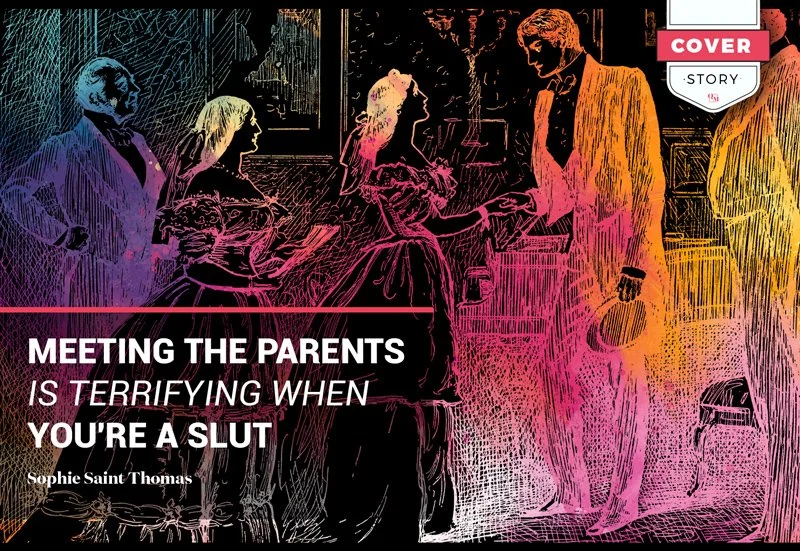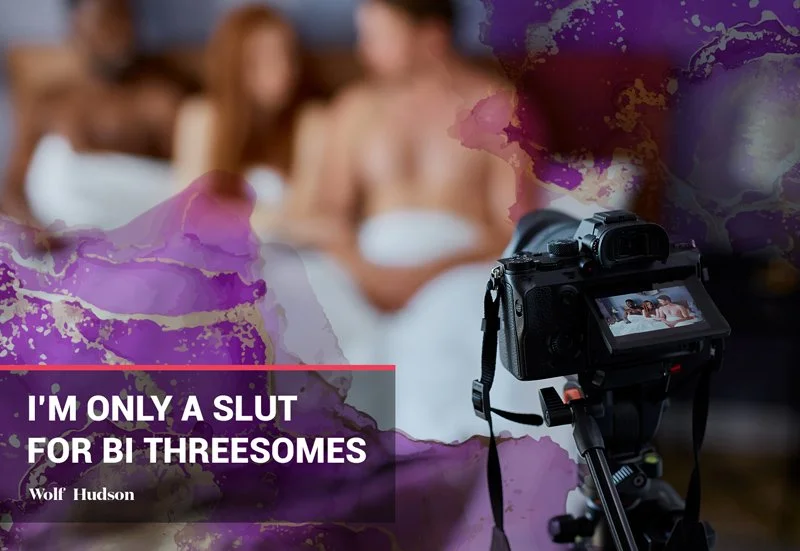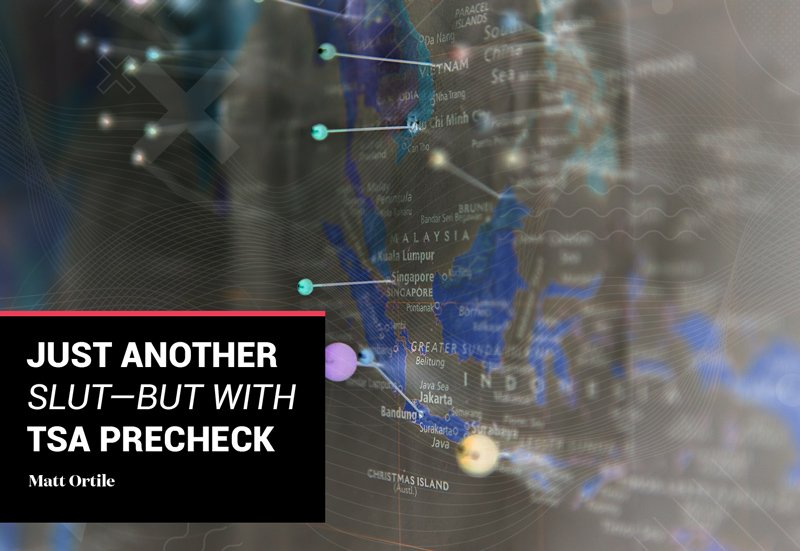The In-Between: Femme Bisexuality
When I came out as bi at the ripe age of 25, nobody in my friend circle was all that surprised. I had always discussed women and men in a manner that drastically differed from my straight girlfriends, insinuating some theoretical projection that women were Aphrodite and men could only be secondary to that kind of breathtaking seductiveness. When a previous boyfriend once stated that men were built like blocks, I couldn't have agreed more. Every so often, someone would suggest that perhaps I had some sort of deeper attraction to women. Clearly, they could see my “tells” much earlier than I did.
That’s why no one was too shocked when I came out as bi, except for queer people on dating apps. Due to my more traditionally feminine appearance, the women I encountered online saw me as a curious straight girl instead of as someone who was “legitimately” queer. Their judgment and disapproval was palpable when they told me things like, “I don't date girls who are newly out, sorry,” or “You look really straight.” This became my new normal, and I couldn't pinpoint why.
Before coming out, I clearly had not understood the complexities of being categorized into the many labels queer women impose upon each other, like “femme”, “bicurious”, and “masc” (short for “masculine). Apparently, I was femme.
The LGBTQ+ dictionary Queer Undefined defines femme as “a feminine presentation, expression, or behavior.” I quickly found out that there were many stereotypes associated with that definition. By nature, I must be exclusively into butch women. I must subconsciously wish to emulate a heteronormative relationship dynamic in which I would play the woman and the masc queer woman would take on the role of the man. And I must only like to wear “girly” clothes and to be the sexually submissive partner.
I was astounded by the stereotyping I experienced. These were people who were supposedly all about breaking the traditional boundaries of sexual and gender identity, and here they were confining me to an in-between place that made the experience of queer dating too challenging to comprehend. I could barely grasp what was expected of me, what behavior was “acceptable”, and what was frowned upon by the community at large.
This conventionalized image of the femme bisexual woman, the idea that two feminine-presenting women could only ever be attracted to each other through the lens of “the male gaze”, is only further exacerbated by the porn industry. Porn frequently pushes the fantasy many cisgender men have of the femme woman’s sex life, in that it almost always revolves around a man. Somehow, society has deemed that two women couldn't possibly be attracted to each other without a man playing a significant role in their relationship.
I felt like I was being suffocated by the limitations of this femme bisexual trope, which was being imposed upon me by both the queer and heteronormative worlds. To further complicate my situation, I didn't fit into the one-dimensional narratives in which queer women wanted me to exist. I had very little attraction to masc women, I was sexually dominant — the few times I went on a date with a masc woman who took the lead were highly uncomfortable experiences — and I almost always made the first move in asking a woman out on a date. Sadly, after talking to countless women online, I came to understand that when they finally gather the courage to explore their attractions and love of other women, many femme bi women experience the same troubles I did.
I took it upon myself to learn how to navigate the labels associated with the community in which I had found myself flailing around, and I reached out to the few queer women I had in my life at the time. When I asked a femme bi friend why individuals online assumed I was straight, she enlightened me about the gatekeeping of sexual identities that often occurs due to the "countless straight women who approach queer women on the apps."
These women are often hoping to find a “unicorn” (a bi girl who will have sex with a male/female couple). Sometimes, they have a fleeting interest in WLW (women-loving-women) relationships with no real desire to date, which is very frustrating when you’re a queer woman looking to find love. Many have at some stage fallen for a "straight" or bicurious girl who wanted a novel sexual “adventure” rather than to foster a long-term partnership or deeper connection with another woman.
The last thing any queer woman wants to do is fall in love with a “straight” girl. So labels like “butch”, “service top”, “gold-star lesbian”, and the like allow queer women online to better gauge the type of woman they will potentially be encountering and whether or not they might be romantically and sexually compatible.
This knowledge gave me a new outlook on my own predicament. Perhaps I could benefit from having access to my limbo identity. What if the in-between space could be used in my favor? What if I could shatter all preconceived notions of what it meant to be a femme bi woman? For instance, I thoroughly enjoy enlightening the straight men in my life who are surprised that I almost always date other femme women. I leave these conversations with a sense of confidence, feeling empowered because I knew something they didn’t have any experience with. I admit I enjoy the look of puzzlement on their faces when they ask, “But who is the boy in the relationship?” — and to this, I answer, “That’s the whole point. We don’t need that kind of patriarchal bullshit. We’re equals!”
Even more rewarding is telling lesbians on dating apps that I'm a bi woman who solely dates women. So many of them mistakenly believe that bi femme women can never have a strong dating preference for women, and debunking this myth feels deliciously subversive. For bi femme women, not feeling “queer enough” can be a challenge — so it's gratifying to know I can transform the narrative for the better via the way I converse with the lesbians in my life. Using my femme bisexuality this way gives me power rather than putting up obstacles.
After so much time shying away from a stigmatized label, I reclaimed it. It’s as much a part of who I am as my blood type or eye color. I went from loathing the idea that I existed on the outskirts of two worlds to recognizing that it is, in itself, where my power lies. There's a unique satisfaction that comes with being a femme bi woman who prefers to date other women. To those who buy into the stereotypes, I present as wonderfully, gloriously atypical, and I couldn't be prouder of it.
Published Apr 19, 2022
Updated Sep 3, 2024
Published in Issue XI: Slut










